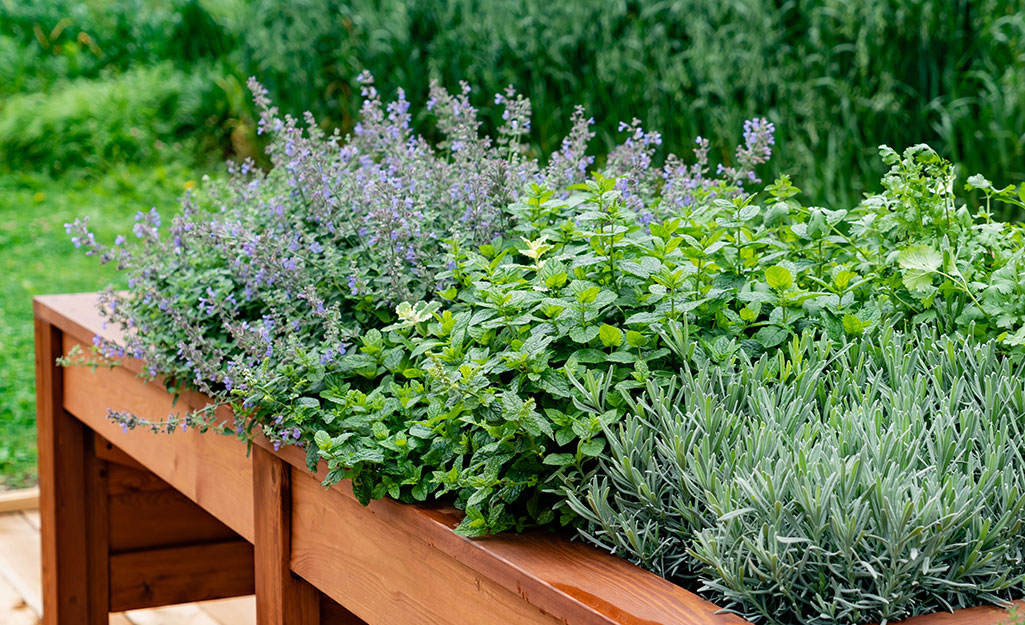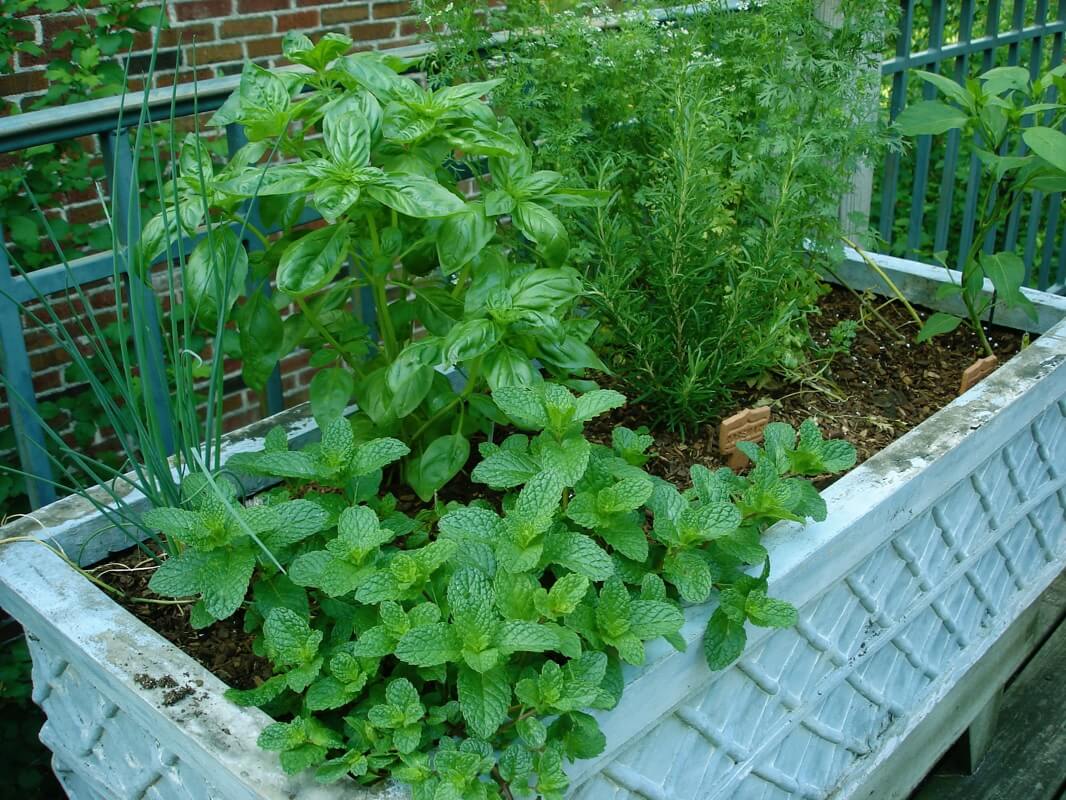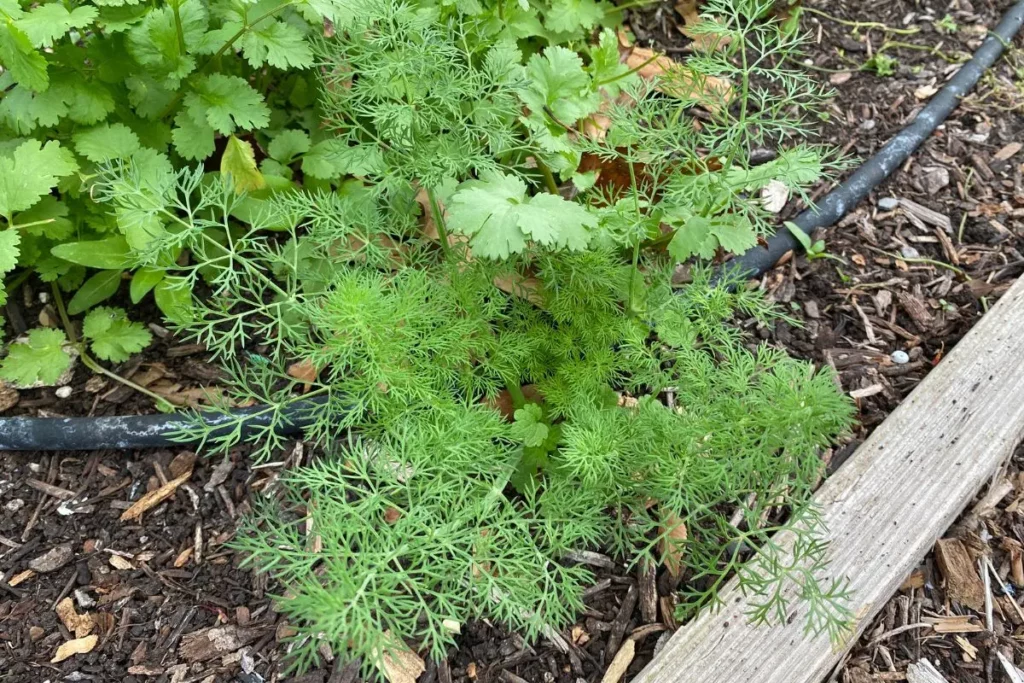The Ultimate Guide To Companion Planting Herbs In Raised Beds
The Ultimate Guide to Companion Planting Herbs in Raised Beds
Herbs are a great addition to any garden, and they can be especially beneficial when planted in raised beds. Raised beds offer a number of advantages for growing herbs, including:
- Improved drainage
- Better air circulation
- Easier access for weeding and harvesting
- Increased soil temperature
When companion planting herbs in raised beds, there are a few things to keep in mind:
- Consider the plants' needs. Not all herbs have the same growing requirements. Some need full sun, while others prefer partial shade. Some need moist soil, while others prefer drier conditions. It's important to match the plants' needs so that they can all thrive.
- Plant taller herbs in the back and shorter herbs in the front. This will help to create a balanced and visually appealing display. It will also help to prevent taller herbs from shading out smaller herbs.
- Group herbs that have similar needs together. This will help to reduce competition for resources, such as sunlight, water, and nutrients.
- Use companion planting to attract beneficial insects and repel pests. Certain herbs can attract beneficial insects, such as ladybugs and butterflies, which can help to control pests. Other herbs can repel pests, such as mosquitoes and aphids.
Here are some specific herb pairings that work well in raised beds:
- Basil, oregano, and thyme. These Mediterranean herbs have similar growing requirements and can help to repel pests.
- Chives, carrots, and tomatoes. Chives can repel aphids and carrot flies, while carrots can help to improve the flavor of tomatoes.
- Dill, cucumbers, and beans. Dill can attract pollinators, which can help to pollinate cucumbers and beans.
- Lavender, rosemary, and sage. These aromatic herbs can help to repel pests and attract beneficial insects.
- Parsley, lettuce, and spinach. These leafy greens can be planted together and harvested throughout the growing season.
With a little planning, you can create a beautiful and productive herb garden in your raised beds. By following the tips above, you can ensure that your herbs have the best possible chance of thriving.
Herbs to Grow Together in Raised Beds
Growing herbs in a raised bed is a great way to have fresh, flavorful herbs at your fingertips all season long. When choosing herbs to plant together, it's important to consider their growing requirements. Some herbs, such as basil and parsley, prefer full sun and well-drained soil, while others, such as mint and oregano, can tolerate more shade and moisture.
Here are a few herb pairings that do well in raised beds:
- Basil, thyme, and oregano: These Mediterranean herbs all prefer full sun and well-drained soil. They can be planted together in a single pot or bed, or they can be used to create a colorful and fragrant border. Garden Wiki
- Chives, parsley, and mint: These herbs all have different growing requirements, but they can be planted together in a large pot or bed. Chives and parsley prefer full sun, while mint prefers partial shade. By planting them together, you can create a space that accommodates all of their needs. Garden Wiki
- Lavender, rosemary, and sage: These herbs all have a strong fragrance and can be used to deter pests. They prefer full sun and well-drained soil. Lavender and rosemary can grow quite large, so it's important to give them enough space. Sage is a bit more compact, so it can be planted in a smaller space. Garden Wiki
No matter what herbs you choose to plant, be sure to do your research to make sure they will thrive in your raised bed. With a little planning, you can create a beautiful and productive herb garden that will provide you with fresh herbs all season long.
FAQ of herbs to grow together in raised bed
- What are some herbs that grow well together in a raised bed?
There are many herbs that grow well together in a raised bed. Some popular combinations include:
- Mediterranean herbs: Rosemary, oregano, marjoram, thyme, lavender, and sage all have similar growing requirements and can be planted together in a sunny spot.
- Damp herbs: Basil, cilantro, tarragon, and parsley all prefer moist soil and can be planted together in a partially shaded spot.
- Mint: Mint is a vigorous grower and can quickly take over a garden, so it's best to plant it in its own container or separate bed.
- Herbs for cooking: Some herbs, such as basil, oregano, and parsley, are commonly used in cooking. You can plant these herbs together in a sunny spot so you can easily reach them when you're cooking.
- Herbs for tea: Some herbs, such as chamomile, mint, and lemon balm, can be used to make tea. You can plant these herbs together in a partially shaded spot so you can enjoy their fresh flavors all summer long.
- How do you arrange herbs in a raised bed?
When arranging herbs in a raised bed, it's important to consider their growth habits. Taller herbs, such as rosemary and sage, should be planted in the back of the bed, while shorter herbs, such as parsley and chives, should be planted in the front. This will help to ensure that all of the herbs have enough space to grow and thrive.
You can also group herbs together based on their water needs. Moisture-loving herbs, such as basil and parsley, should be planted near each other, while drought-tolerant herbs, such as rosemary and sage, should be planted in a drier area of the bed.
- How far apart should you plant herbs in a raised bed?
The spacing requirements for herbs vary depending on the type of herb and the size of the plant. However, as a general rule of thumb, you should plant herbs at least 12 inches apart. This will give them enough room to grow and spread without competing with each other for resources.
If you're planting larger herbs, such as rosemary or sage, you may need to space them even further apart. Be sure to check the plant tag or nursery information for specific spacing requirements for each herb you're planting.
- What are some companion planting herbs?
Companion planting is a gardening technique that involves planting certain plants together to benefit each other. Some common companion planting herbs include:
- Basil and tomatoes: Basil repels tomato hornworms, a common pest of tomatoes.
- Chives and roses: Chives repel aphids, a common pest of roses.
- Cilantro and carrots: Cilantro helps to deter carrot flies, a common pest of carrots.
- Dill and cabbage: Dill attracts beneficial insects that help to control pests of cabbage.
- Lavender and mint: Lavender helps to deter mint from spreading too aggressively.
- What are some tips for caring for herbs in a raised bed?
Herbs in raised beds need regular watering, especially during hot, dry weather. You should also fertilize your herbs every few weeks with a balanced fertilizer.
In addition to watering and fertilizing, you should also keep an eye out for pests and diseases. If you see any problems, treat them promptly to prevent them from spreading to other plants.
With a little care and attention, you can enjoy fresh, homegrown herbs from your raised bed all season long.
Image of herbs to grow together in raised bed
- Rosemary, thyme, and sage. These herbs all have similar growing conditions and can help each other thrive. Rosemary and thyme need full sun and well-drained soil, while sage can tolerate some shade. They all have a strong aroma that can deter pests.

- Basil, parsley, and chives. These herbs are all relatively low-growing and can be planted in the same bed. They all need full sun and well-drained soil. Basil and parsley are annuals, while chives are a perennial.
- Oregano, mint, and lavender. Oregano and mint are both Mediterranean herbs that need full sun and well-drained soil. Lavender can tolerate some shade. Oregano and mint can be invasive, so it's important to plant them in pots or separate beds.

- Dill, cilantro, and tarragon. These herbs all have a strong aroma that can deter pests. Dill and cilantro are annuals, while tarragon is a perennial. They all need full sun and well-drained soil.

- Marjoram, rosemary, and thyme. These herbs all have similar growing conditions and can help each other thrive. Marjoram and rosemary need full sun and well-drained soil, while thyme can tolerate some shade. They all have a strong aroma that can deter pests.
Post a Comment for "The Ultimate Guide To Companion Planting Herbs In Raised Beds"